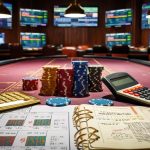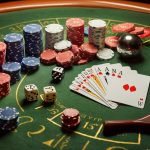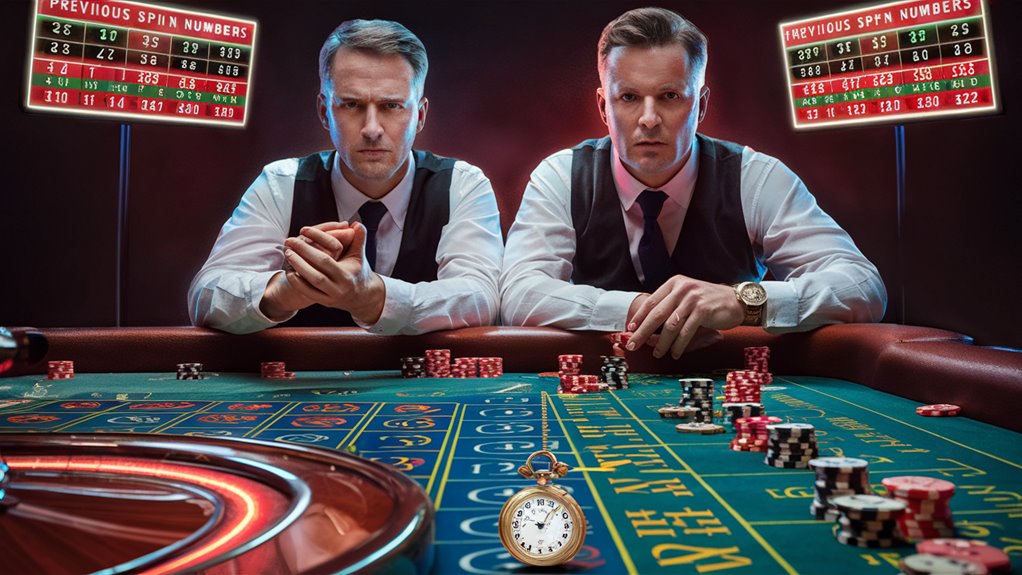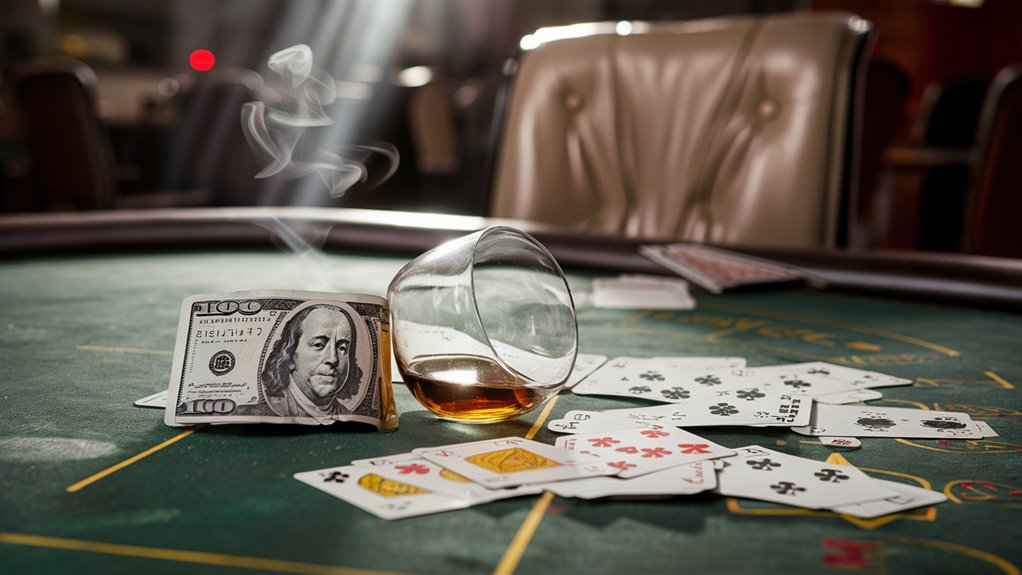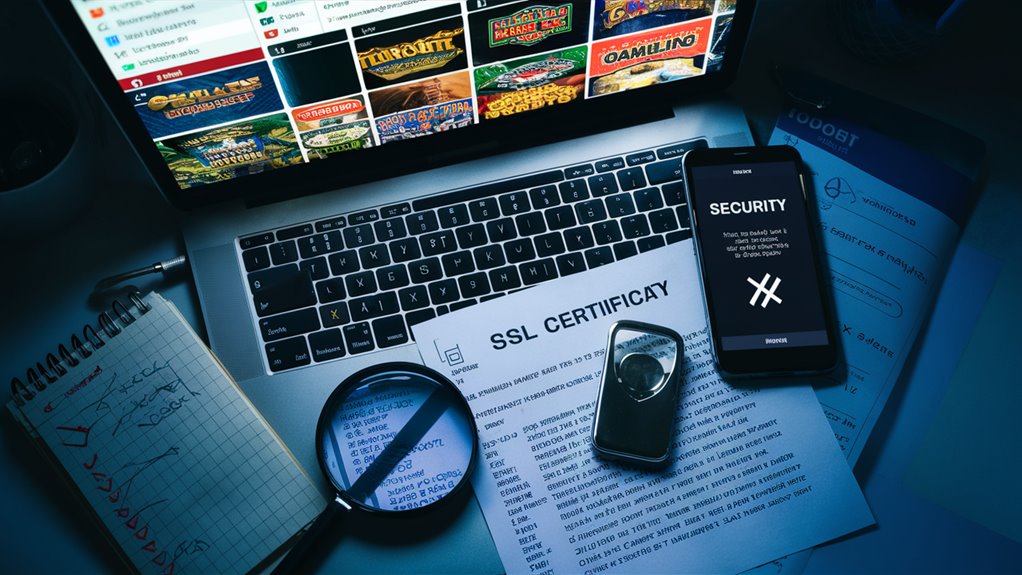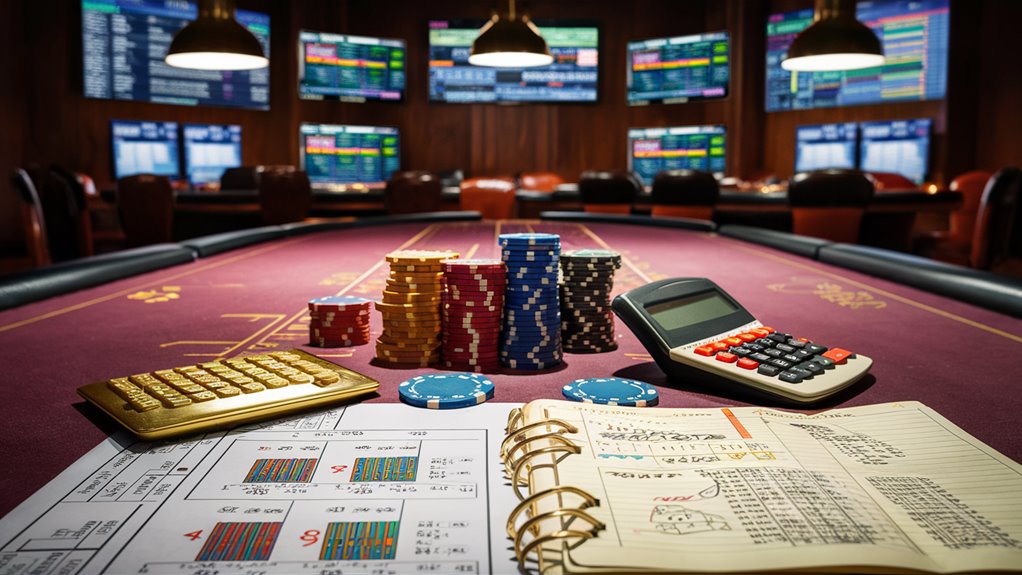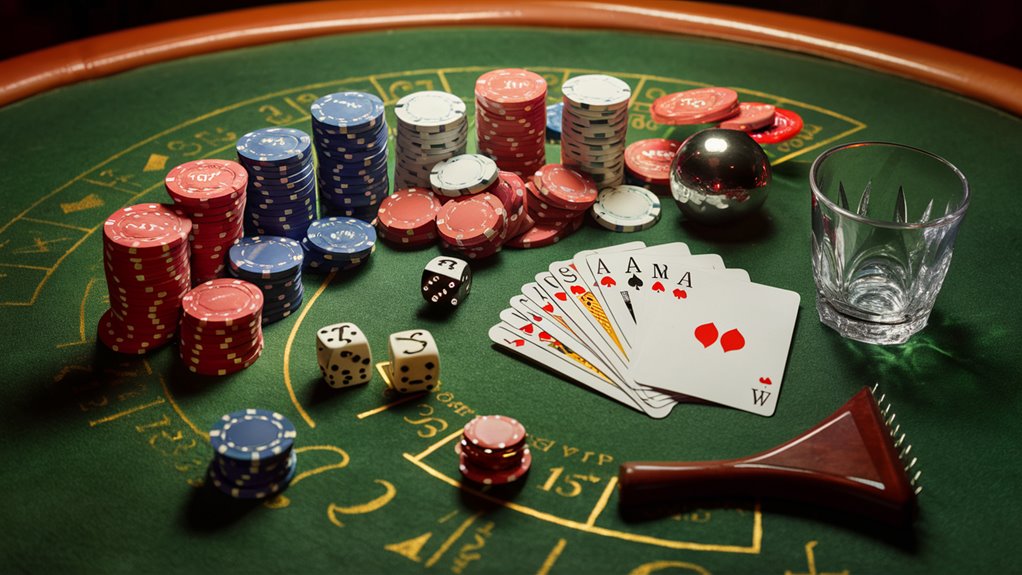How Do Cognitive Biases Affect Our Gambling Decisions?
Key Takeaways
- Cognitive biases systematically affect gambling choices through predictable mental shortcuts
- Understanding these biases helps identify irrational decision patterns in betting
- These same psychological patterns influence decisions beyond gambling in everyday life
The Science Behind Gambling Biases
Cognitive biases shape gambling decisions through systematic mental shortcuts and errors that occur in predictable patterns. These psychological mechanisms influence how we:
- Process probability information
- Evaluate potential wins and losses
- Remember past gambling experiences
- Make betting decisions under uncertainty
Common Gambling Cognitive Biases
The Gambler’s Fallacy
- Believing previous outcomes affect future independent events
- Example: Thinking a coin is “due” for heads after several tails
Confirmation Bias
- Remembering wins more vividly than losses
- Seeking information that supports existing betting strategies
- Dismissing evidence that contradicts preferred gambling patterns
Illusion of Control
- Overestimating personal influence on random events
- Believing certain rituals or behaviors affect gambling outcomes
- Misinterpreting correlation as causation in betting patterns
Practical Applications
Understanding cognitive biases helps gamblers:
- Recognize irrational thought patterns
- Make more objective betting decisions
- Develop healthier gambling habits
- Apply critical thinking to risk assessment
These insights extend beyond gambling to improve decision-making in:
- Financial planning
- Investment choices
- Risk management
- Daily decision-making
The Gambler’s Fallacy Explained
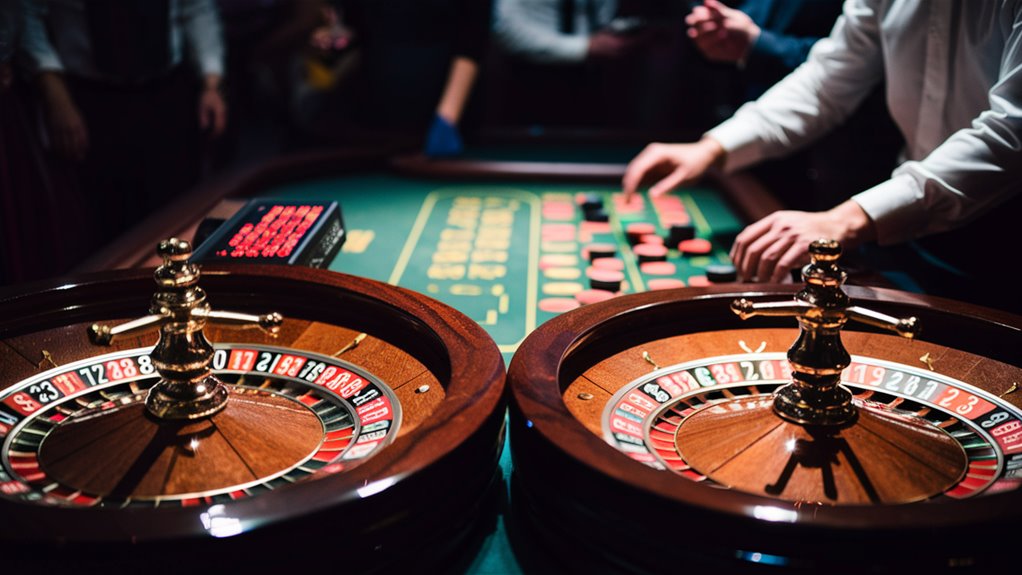
What’s the Gambler’s Fallacy and Why Does it Trip Up So Many People?
Key Takeaways
- The gambler’s fallacy is a cognitive bias that incorrectly links past random events to future outcomes
- Each random event remains completely independent, with unchanging probability
- This misconception often leads to costly betting mistakes and financial losses
Understanding the Basic Concept
The gambler’s fallacy occurs when people wrongly believe that previous random events influence future independent outcomes in games of chance.
This common cognitive bias appears frequently in casino settings, particularly at roulette tables, where players misinterpret multiple black numbers as a signal that red is “due” next.
How Probability Really Works
Random events maintain consistent probabilities regardless of past outcomes:
- Each roulette spin has the same odds (~47.4% for red on American wheels)
- Previous results have zero impact on future spins
- The wheel has no “memory” of past results
- A streak of one color doesn’t change the probability of the next spin
Real-World Impact on Betting Behavior
This misunderstanding of probability leads to problematic betting patterns:
- Increasing bets after losses
- “Chasing” losses with larger wagers
- Believing in “due” outcomes
- Making decisions based on previous results
Protecting Yourself from the Fallacy
To avoid falling into this trap:
- Remember each event is independent
- Ignore patterns in past results
- Maintain consistent betting amounts
- Understand that probability doesn’t “balance out”
This mathematical misconception has caused significant financial losses for countless gamblers who base their strategies on this fundamental misunderstanding of random events.
Confirmation Bias at the Casino
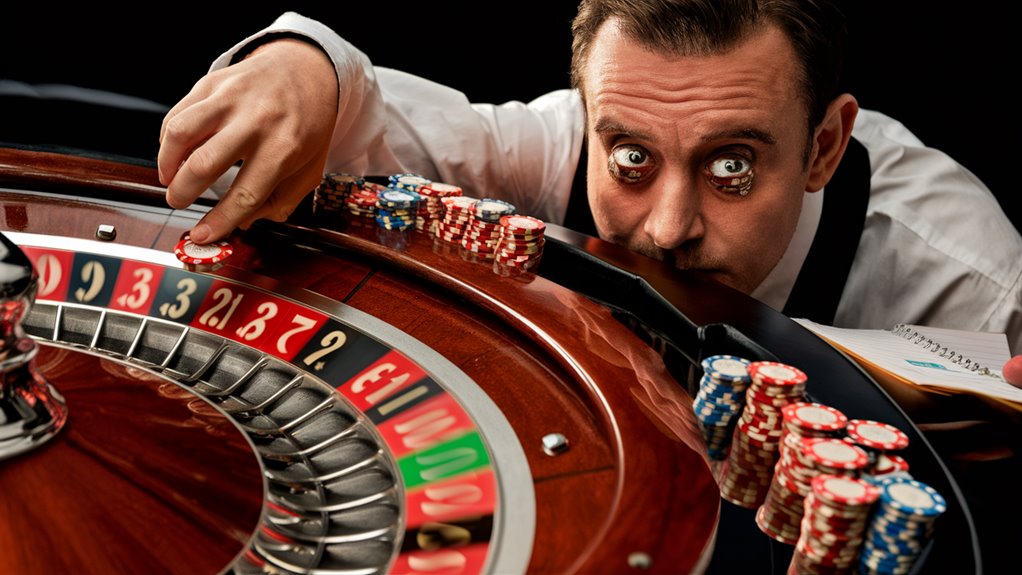
How Does Confirmation Bias Affect Casino Gambling Records?
Key Takeaways
- Gamblers often track wins more meticulously than losses
- Selective record-keeping creates false impressions of profitability
- This bias leads to increased betting despite guaranteed house edge
- Accurate tracking of all results is essential for responsible gambling
Confirmation bias in casino gambling manifests most prominently through selective record-keeping, where players document their wins and losses unevenly.
When gamblers track their results, they typically record winning sessions with precise detail while minimizing or completely omitting their losses.
The Psychology Behind Selective Tracking
This unbalanced documentation creates a dangerous illusion of gambling success.
Players see detailed records of their wins but only vague notes about losses, leading them to believe they’re more successful than reality suggests.
Think of it like keeping a budget but only writing down your income while ignoring your expenses ??the resulting picture becomes severely distorted.
Impact on Betting Behavior
The skewed perception of success often triggers a concerning chain reaction:
- Players feel more confident in their gambling abilities
- Betting amounts gradually increase
- Risk tolerance grows based on false data
- House edge continues working against players
Breaking the Cycle
To combat this bias, gamblers should:
- Record all sessions with equal detail
- Include specific amounts for wins AND losses
- Track time spent gambling
- Calculate total net results regularly
- Review complete records before increasing bets
Remember: Casino games are mathematically designed to favor the house over time, regardless of short-term results or how carefully you track them.
Loss Aversion in Betting
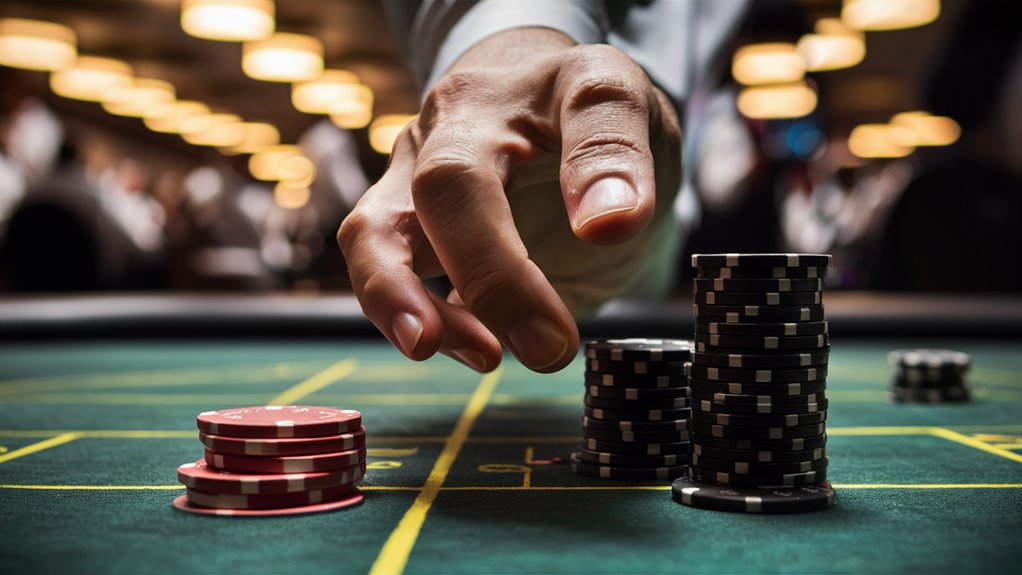
How Does Loss Aversion Impact Betting Behavior?
Key Takeaways
- Loss aversion makes losses feel twice as impactful as equivalent gains
- Gamblers often make riskier decisions when trying to recover losses
- Setting strict loss limits helps protect against loss aversion’s psychological effects
Understanding Loss Aversion in Gambling
Loss aversion is one of the most powerful psychological forces shaping betting behavior, alongside confirmation bias.
Research shows that the emotional impact of losing money typically feels about twice as powerful as winning the same amount, driving gamblers toward increasingly risky decisions.
The Psychology Behind Recovery Betting
When faced with a $500 loss at the blackjack table, players frequently respond by:
- Doubling their normal bet sizes
- Abandoning predetermined betting strategies
- Making impulsive decisions to “break even”
- Taking greater risks than usual
How Casinos Leverage Loss Aversion
The gambling industry capitalizes on loss aversion through strategic promotions:
- Loss rebate programs
- “Earn back” opportunities
- Extended play incentives
- Loyalty rewards targeting past losses
Protecting Yourself from Loss Aversion
To avoid falling into loss aversion traps:
- Set strict loss limits before starting
- Write down your maximum loss threshold
- Commit to walking away when limits are reached
- Ignore psychological pressure to recover losses
- Track betting patterns to identify risk-taking behaviors
Remember: The natural tendency to avoid losses can create a dangerous cycle where larger bets lead to bigger losses, triggering even more aggressive betting behavior.
Hot Hand Effect
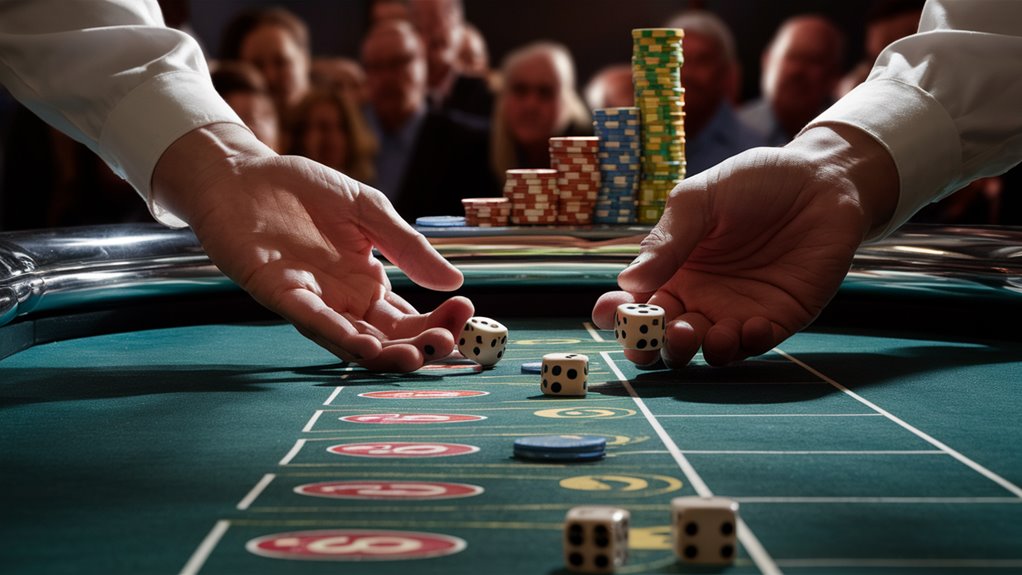
What Is the Hot Hand Effect in Gambling and Why Does It Matter?
Key Takeaways
- The hot hand effect causes gamblers to believe winning streaks predict future wins
- Each gambling event remains statistically independent despite previous outcomes
- Brain chemistry and cognitive biases reinforce this fallacy even in experienced players
Understanding the Hot Hand Fallacy
The hot hand effect in gambling creates a powerful 유튜브카지노 psychological illusion where players believe winning streaks indicate future success.
This cognitive bias leads gamblers to misinterpret random sequences of wins as predictive patterns, similar to basketball fans who expect players to keep scoring after making several consecutive shots.
Impact on Betting Behavior
The hot hand fallacy influences gambling decisions in several key ways:
- Players increase their bet sizes following winning streaks
- Conservative bettors switch to aggressive betting patterns
- Risk tolerance increases based on recent wins
- Mathematical probability gets overlooked in favor of “gut feelings”
The Science Behind the Bias
Brain imaging research reveals why this fallacy persists:
- Winning sequences activate neural reward centers
- Dopamine release reinforces pattern-seeking behavior
- Emotional responses override rational probability assessment
- Previous wins create false confidence in future outcomes
Even experienced gamblers fall prey to this cognitive bias, despite understanding the unchanging nature of house edges and probability.
The combination of psychological factors and brain chemistry makes the hot hand fallacy particularly difficult to overcome, even when presented with clear mathematical evidence that each gambling event remains independent.
Anchoring and Adjustment Biases
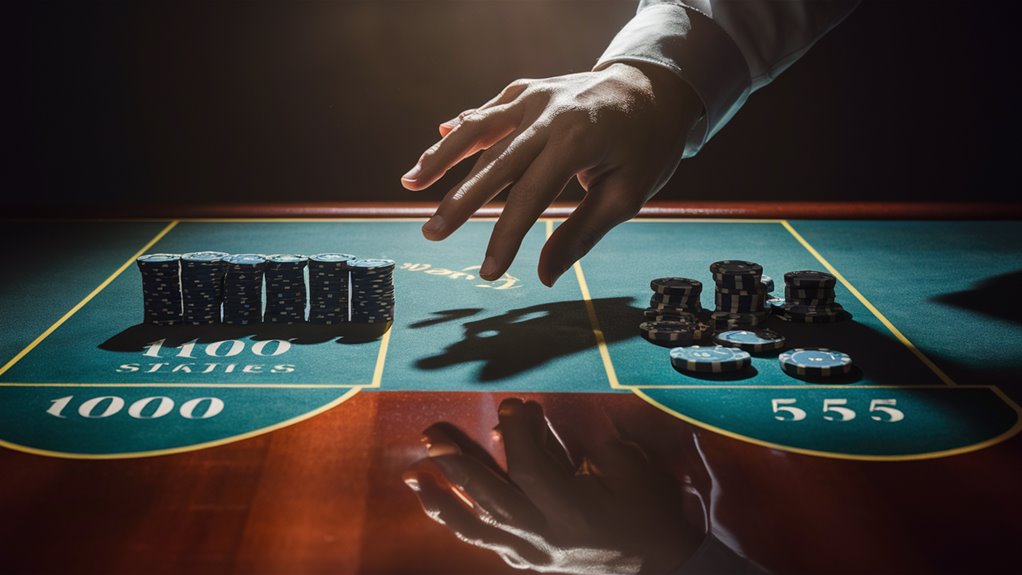
How Do Anchoring and Adjustment Biases Affect Gambling Decisions?
Key Takeaways
- Initial reference points strongly influence subsequent betting decisions
- Casino environments strategically use anchoring to impact betting behavior
- Understanding these biases helps protect against poor gambling choices
Anchoring and adjustment biases play a crucial role in shaping gambling decisions from the moment a player enters a casino.
These psychological mechanisms affect how people process betting information and make financial choices throughout their gambling experience.
Initial Reference Points
When gamblers encounter their first piece of betting information, it becomes a powerful mental anchor that influences all subsequent decisions. For example:
- A $25 minimum bet table near the entrance sets a high reference point
- Lower betting minimums may seem inadequate after seeing higher ones first
- Win/loss limits often anchor to suggested amounts rather than personal budgets
Casino Strategic Placement
Casinos deliberately leverage anchoring bias through:
- High-limit tables positioned near entrances
- Prominent displays of large jackpot amounts
- Strategic placement of higher minimum bet areas
Impact on Betting Behavior
The anchoring effect manifests in several ways:
- Players may bet more than planned due to high initial anchors
- Loss limits often adjust upward based on environmental cues
- Decision-making becomes skewed by early exposure to certain numbers
Protecting Against Bias
To minimize the impact of anchoring:
- Set firm betting limits before entering the casino
- Focus on personal budget rather than environmental cues
- Recognize when external factors are influencing decisions
Overconfidence in Gambling Decisions
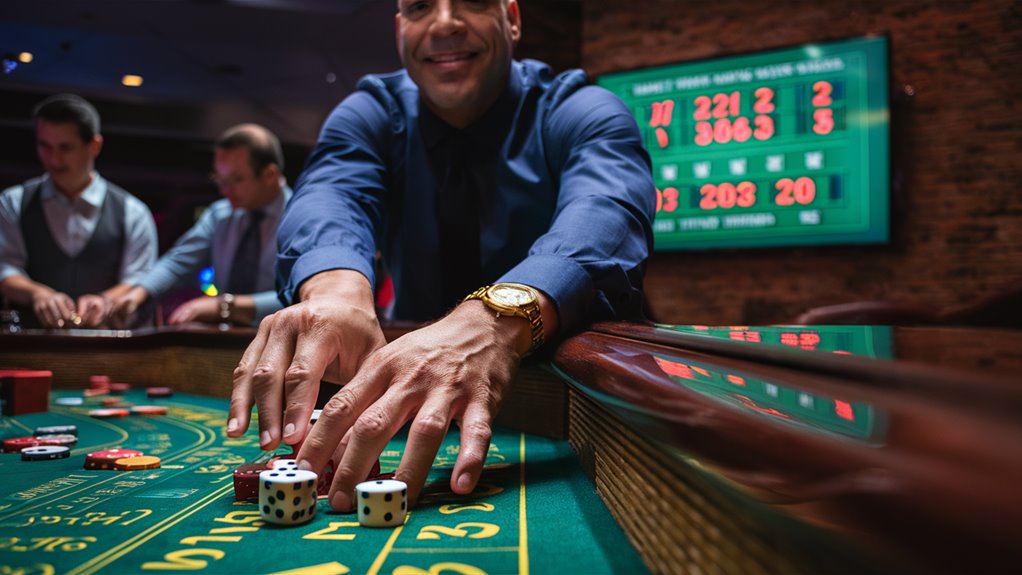
How Does Overconfidence Affect Gambling Decisions?
Key Takeaways
- Overconfidence leads gamblers to overestimate their ability to control random outcomes
- Three main types: illusion of control, knowledge overestimation, and hot streak beliefs
- Combat overconfidence through record-keeping, betting limits, and understanding randomness
Understanding Gambling Overconfidence
Overconfidence represents one of the most dangerous psychological traps in gambling decision-making.
Gamblers frequently overestimate their ability to predict outcomes, control random events, or beat house edges through perceived skill.
This inflated self-assessment typically results in increasingly risky bets and poor bankroll management.
Three Main Types of Gambling Overconfidence
- Illusion of Control
- Belief that personal rituals influence random outcomes
- False sense of control over game results
- Superstitious behaviors affecting betting decisions
- Knowledge Overestimation
- Overvaluing gambling experience after few wins
- False confidence in mastering complex games
- Misunderstanding of probability and statistics
- Hot Streak Mentality
- Believing past wins predict future success
- Increasing bet sizes based on recent victories
- Ignoring the independence of gambling events
Practical Solutions to Combat Overconfidence
- Track Your Results
- Maintain detailed records of wins and losses
- Review betting patterns regularly
- Identify trends in decision-making
- Set Clear Limits
- Establish strict betting limits before playing
- Stick to predetermined bankroll management
- Avoid chasing losses or increasing stakes
- Remember Randomness
- Treat each bet as an independent event
- Acknowledge the role of luck in outcomes
- Stay grounded in statistical reality
Professional gamblers consistently emphasize that luck plays a significant role in gambling results, regardless of skill level or experience.
Availability Heuristic While Betting
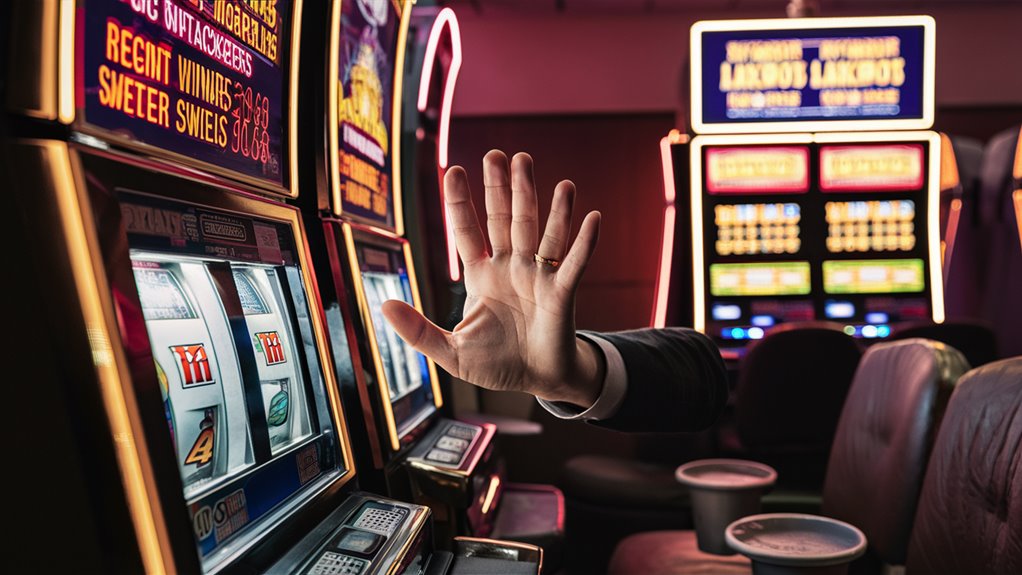
How Does the Availability Heuristic Affect Betting Decisions?
Key Takeaways
- The availability heuristic causes bettors to overvalue recent or memorable gambling experiences
- Media coverage of big winners significantly influences betting behavior despite low odds
- Keeping detailed betting records helps counter this cognitive bias
- Emotional gambling experiences are unreliable predictors of future outcomes
Understanding the Availability Heuristic in Gambling
The availability heuristic directly impacts betting decisions by making recent or memorable gambling experiences seem more significant than they actually are.
When making betting choices, your brain naturally gravitates toward easily remembered events rather than analyzing statistical probabilities. For example, that recent slot machine jackpot stands out vividly in your memory while the twenty losing sessions fade into the background.
Media Influence and Memory Bias
News coverage of gambling winners creates a powerful availability bias effect.
When you see stories about massive lottery winners, those vivid images of success make winning feel more attainable than the actual odds suggest. This psychological effect often leads to:
- Increased lottery ticket purchases after publicized big wins
- Overconfidence in gambling decisions
- Dismissal of statistical probabilities
- Focus on exceptional outcomes rather than typical results
Countering Availability Bias in Sports Betting
Sports betting particularly demonstrates how the availability heuristic can mislead. Bettors often:
- Overemphasize a team’s most recent performances
- Ignore long-term statistical trends
- Make decisions based on memorable plays or games
- Discount important analytical factors
Practical Steps to Overcome This Bias
- Maintain detailed records of all betting activity
- Review complete win-loss data regularly
- Focus on long-term patterns rather than recent outcomes
- Recognize that emotional experiences don’t predict future results
- Base decisions on statistical analysis rather than memory
Remember to evaluate betting choices using comprehensive data rather than relying on easily recalled experiences, regardless of how compelling those memories might feel.
Sunk Cost Fallacy
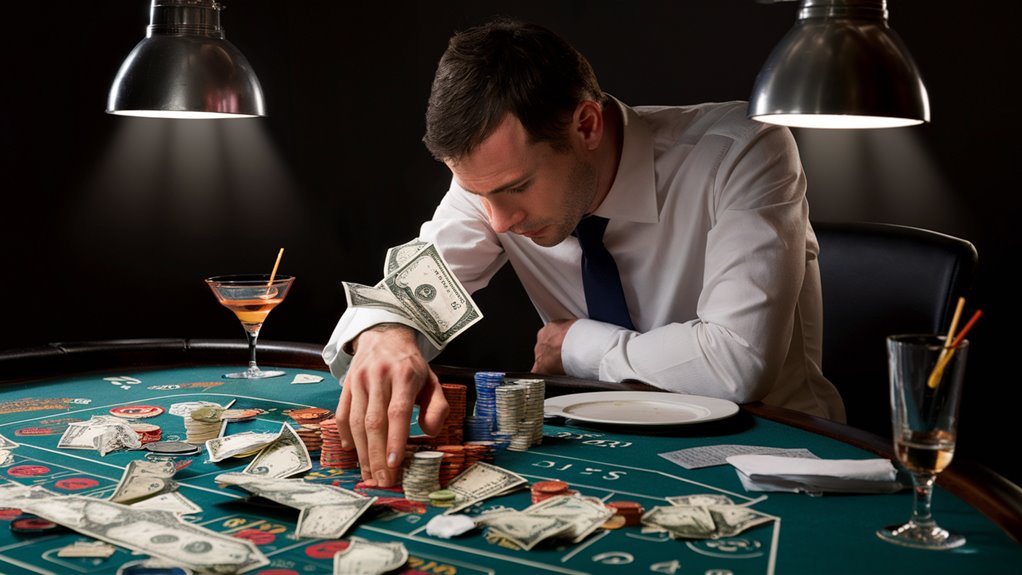
What Is the Sunk Cost Fallacy in Gambling and How Can You Avoid It?
Key Takeaways
- Sunk cost fallacy leads gamblers to continue playing based on previous losses
- Past investments should never influence future gambling decisions
- Breaking free requires focusing on present circumstances, not past losses
The sunk cost fallacy in gambling occurs when players continue betting because of their previous time or money investment, rather than making rational decisions based on current circumstances.
This psychological trap manifests most commonly in thoughts like “I’ve already lost $500, so I need to keep playing to win it back.”
Understanding the Psychology Behind Sunk Costs
When gamblers fall into the sunk cost trap, they focus on unrecoverable past investments instead of evaluating their present situation objectively.
Each betting decision should stand independently, regardless of whether previous losses total $10 or $10,000 – that money is already gone and irrelevant to future choices.
Breaking Free from the Sunk Cost Fallacy
To overcome this cognitive bias, consider these strategies:
- Evaluate each bet as if it’s your first
- Focus on present circumstances and future consequences
- Ask yourself: “Would I place this bet if I were starting fresh?”
- Ignore previous losses when making new betting decisions
Making Better Gambling Decisions
Before placing any bet, consider these questions:
- Does this bet make sense based on current odds and circumstances?
- Am I betting because of genuine opportunity or past losses?
- What’re the realistic potential outcomes of this decision?
Making rational gambling decisions requires separating past investments from present choices.
Remember that previous losses can’t be recovered through continued gambling, and each new bet should be evaluated solely on its own merits.




